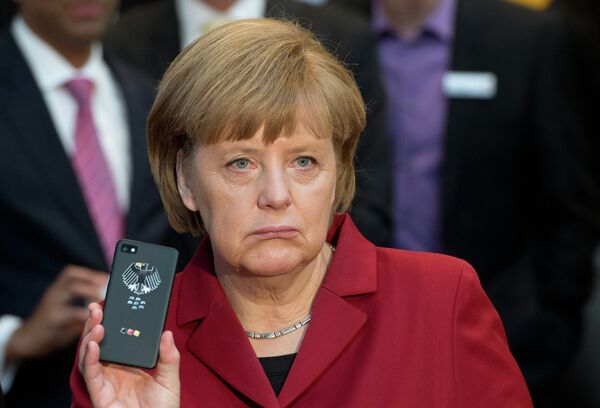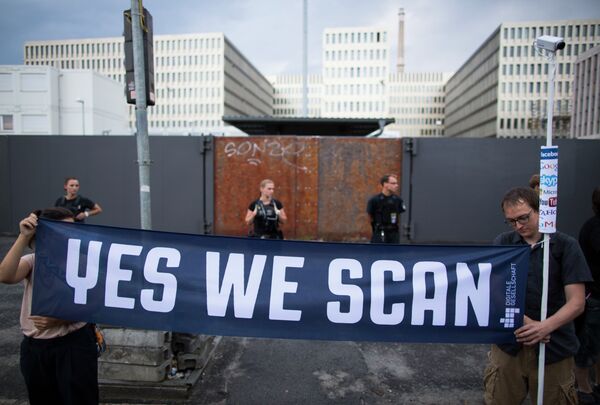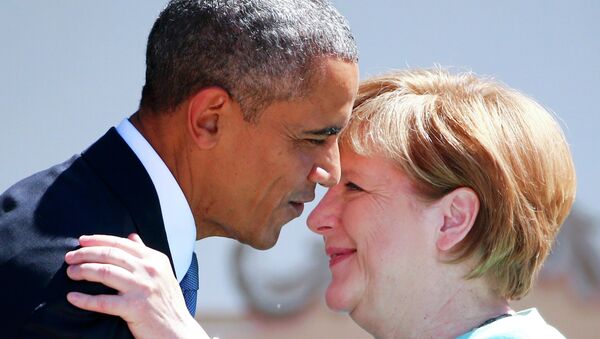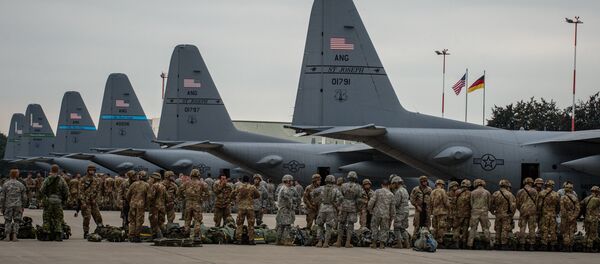Obama and Merkel have been close allies ever since he visited Berlin, 2008 — ahead of his presidency — where he took on the mantle of John F. Kennedy, who famously brought the youth and vibrancy of the US dream to Berlin, 45 years earlier.

In June 1963, Kennedy — the epitome of a new revival, positivism and post-war freedom — invoked the spirit of a new era, where the people were unshackled and proud of their heritage.
"Two thousand years ago, the proudest boast was civis romanus sum ['I am a Roman citizen']. Today, in the world of freedom, the proudest boast is 'Ich bin ein Berliner!'… All free men, wherever they may live, are citizens of Berlin, and therefore, as a free man, I take pride in the words "Ich bin ein Berliner!" Kennedy said.
Forty-five years on, Obama stood opposite the Brandenburg Gate in Berlin and invoked the spirit of Kennedy, saying: "The burdens of global citizenship continue to bind us together. A change of leadership in Washington will not lift this burden. In this new century, Americans and Europeans alike will be required to do more — not less.
"Partnership and cooperation among nations is not a choice; it is the one way, the only way, to protect our common security and advance our common humanity. That is why the greatest danger of all is to allow new walls to divide us from one another."
Relationship Breakdown
The use of drones to attack enemies in the Middle East and beyond was also a divisive issue — not least when it was discovered that the US military were using airbases in Germany to act as communications hubs between the remote pilots and the targets.
Worst of all were the revelations by former CIA contractor Edward Snowden that the US National Security Agency (NSA) had worked with the British GCHQ agency to intercept mass communications data of European citizens, which unleashed a huge storm of protest in Gremany.
The situation worsened when it was alleged that Merkel's own mobile phone had been targeted by the NSA — denied by Obama, but still believed by many to have taken place.

Finally, their last get-together in Hanover, April 2016, was supposed to see Obama press the case for the Transatlantic Trade and Investment Partnership (TTIP), an EU-US trade agreement that he has been pushing to close by the end of his presidency.

Many in Germany have criticized the secretive nature of the talks that will create the biggest trade area in the world. But critics say the deal will water down EU regulatory control over what people eat, drink and use for medicines. They say US companies will ride roughshod over EU regulations designed to protect its citizens.
As Obama meets Merkel in Berlin, November 16, the two leaders may allow each other a wry smile at what might have been, but never was.



